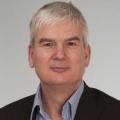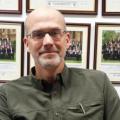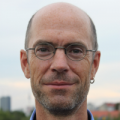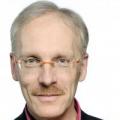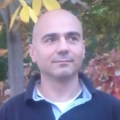Partners
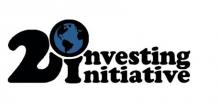
2° Investing Initiative (2°ii), France
The 2° Investing Initiative [2°ii - pronounced "Two Degrees Investing Initiative"] is a multi-stakeholder think tank working to align the financial sector with 2°C climate goals. Our research and engagement activities seek to:
- Align investment processes of financial institutions with 2°C climate scenarios;
- Develop the metrics and tools to measure the climate performance of financial institutions;
- Mobilize regulatory and policy incentives to shift capital to energy transition financing.
The association was founded in 2012 in Paris, and is now based in Paris and New-York, with offices in London and Berlin. Our work is global, both in terms of geography and engaging key actors. We bring together financial institutions, issuers, policy makers, research institutes, experts, and NGOs to achieve our mission.
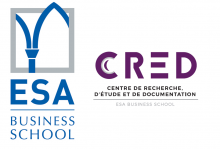
Centre de Recherche, d'Etudes et de Documentation (CRED-ESA), Lebanon (Associated partner of Green-Win project)
The Centre de Recherche, d'Etudes et de Documentation (CRED) is the Research Centre of the Ecole Supérieure des Affaires (ESA); a Business School training the future business leaders and executives of Lebanon and the Middle East. CRED's mission is to understand and explain the opportunities for Lebanese and regional businesses to facilitate their adaptation to the changes of the contemporary world. It is in this context that the CRED examines sustainable development, entrepreneurship and other issues affecting the evolution of contemporary cities.
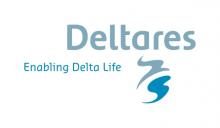
Deltares, Netherlands
Deltares is an independent institute for applied research in the field of water, subsurface and infrastructure with areas of expertise in flood risk and adaptive planning. Throughout the world, Deltares works on smart solutions, innovations and applications for people, environment and society. The primary task of Deltares is bringing together science and application: translating scientific knowledge into innovative solutions needed in sustainable (clean and safe) development of deltas. Managing these densely populated and vulnerable areas is complex, which is why Deltares works closely with governments, businesses, other research institutes and universities at home and abroad. One of the ongoing projects is adaptation of Deltaic area’s and infrastructure to climate change. Deltares supports the Dutch Government in its decisions to adapt the water management and flood defences in the Dutch Delta in a changing climate, the Dutch Delta Programme. Deltares believes in openness and transparency as is evident from the free availability of their software, models and online courses related to water and soil.

E3-Modelling, Greece
E3-Modelling (E3M) is a knowledge-based company created as a spin-off of modelling and economic research performed over many years in E3MLab. E3-Modelling is specialized in the development of complex models and carries out impact assessment studies focusing in the fields of economy, energy and the environment as well as markets, for 36 countries in Europe, G-20, MENA countries, the Russian Federation and the emerging economies globally. E3M provides consultancy services based on the use of complex large-scale applied mathematical models ranging from the GEM-E3, a computable general equilibrium model, the European energy system model PRIMES, the PRIMES-TREMOVE Transport model and the global stochastic energy model PROMETHEUS, to sector-specific models on energy efficiency in buildings, industrial sector and the renewables.
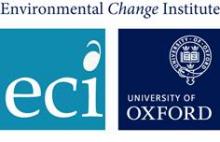
Environmental Change Institute, UK
The University of Oxford’s Environmental Change Institute, part of the School of Geography and the Environment, pioneers a distinctive programme spanning from interdisciplinary scientific research toward understanding environmental change and its impacts to sustainable solutions for decision-makers responding to the convergent and interacting combination of systemic challenges posed by social-environmental change. The ECI has more than 60 researchers and 60 graduate students from some 40 countries, forming expert teams in: biodiversity and climate adaptation; climate impacts and adaptation; ecosystem dynamics and services; energy demand management; food and water security; and sustainable infrastructure systems. The ECI leads and engages in large national and international consortia with research and more than 350 stakeholder partners. In addition, they train international graduate students from the sciences, social sciences, humanities, and engineering in strategic environmental leadership, management and decision-making through our unique interdisciplinary post-graduate MSc, MPhil, and DPhil programmes.

European Centre for Living Technology at Università Ca' Foscari Venezia, Italy
UNIVE has an outstanding international reputation for excellence in teaching and research. Advanced research is developed in 8 departments and 20 interdisciplinary centers among which is the European Centre for Living Technology (ECLT, www.ecltech.org). ECLT is dedicated to the study and creation of a new science associated with technologies which exhibit life-like characteristics, such as self-organization, adaptability, capacity to evolve and react to environmental stimuli, etc. The research, currently focused in the fields of bio-nano-technology, sustainability, innovation and ICT, is developed in collaboration with scientists belonging to the 15 European Universities and international Research Centres which are members of ECLT. The Centre hosts several types of activities, including seminars, medium- and long-term individual research visits, workshops with 10-40 people attending, conferences with attendance of 40-100 people, and public lectures. The Centre is also an international meeting point for the development both of basic research and the creation of new technologies for the productive sector and the transfer of these technologies to various sectors such as pharmaceutics, medicine and the environment.

Global Climate Forum (GCF), Germany
The Global Climate Forum is a non-profit association of research institutes, think tanks, companies, NGOs and individual researchers that together initiate and perform innovative research on climate change and related global challenges. Our aim thereby is not necessarily to reach a consensus, but to develop a variety of well-considered opinions. The forum thus cultivates a pluralistic exchange in which different points of view are freely expressed and debated, on a basis of mutual respect. By doing so, GCF has develop world-leading expertise in a number of topics including green growth, instruments and technologies for reducing greenhouse gas emissions, integrated risk and adaptation governance, and coastal climate impacts and adaptation. Currently GCF staff coordinate two major European-funded projects: i) Centre of Excellence for Global Systems Science (CoeGSS), which is a European consortium of supercomputing centres, scientific institutions, businesses and NGOs that helps industry, policy makers and the society, faced with global challenges, take effective action by providing them with high resolution data and simulations; ii) GREEN-WIN, which draws together universities, think tanks, UN agencies, NGOs and finance institutes from around the world, in order to identify, develop and critically assess win-win strategies, green business models and green growth pathways that bring short-term economic benefits, while also supporting mitigation and adaptation goals within the broader sustainable development agenda.

Global Green Growth Institute (GGGI), Republic of Korea
The Global Green Growth Institute (GGGI) is an international organization dedicated to supporting and promoting strong, inclusive and sustainable economic growth in developing countries and emerging economies. Established in 2012, at the Rio+20 United Nations Conference on Sustainable Development, GGGI is accelerating the transition toward a new model of economic growth – green growth – founded on principles of social inclusivity and environmental sustainability. GGGI works with developing and emerging countries to design and deliver programs and services that demonstrate new pathways to pro-poor economic growth. GGGI supports stakeholders through two complementary and integrated workstreams – Green Growth Planning & Implementation and Knowledge Solutions – that deliver comprehensive products and services designed to assist in developing, financing and mainstreaming green growth in national economic development plans. GGGI, together with the Organisation for Economic Co-operation and Development (OECD), the United Nations Environment Programme (UNEP) and the World Bank founded the Green Growth Knowledge Platform (GGKP) in 2012. The GGKP is a global partnership, drawing together over 40 international organisations to identify and address major knowledge gaps in green growth theory and practice.
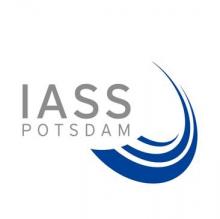
Institute for Advanced Sustainability Studies (IASS), Germany
Funded by the Federal Ministry of Education and Research (BMBF) and the Federal State of Brandenburg, the IASS aims to identify and promote development pathways for a global transformation towards a sustainable society. The IASS employs a transdisciplinary approach that encourages dialogue to understand sustainability issues and generate potential solutions in cooperation with partners from the sciences, politics, the economy, and civil society. A strong network of national and international partners supports the work of the institute. Its central research topics include the energy transition, emerging technologies, climate change, air quality, systemic risks, governance and participation, and cultures of transformation.
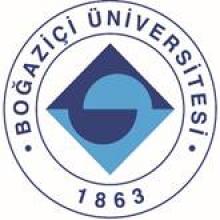
Institute of Environmental Sciences at Boğaziçi University, Turkey
Institute of Environmental Sciences is a research and graduate institute in Boğaziçi University, Istanbul. Bogazici University is one of the leading higher education and research institutions in Turkey. It involves more than 10000 students and 800 academic staff, of which about 420 are full time faculty members with doctorate degrees. The university has achieved considerable success in the European Commission’s FP6 and FP7 programs. The Institute of Environmental Sciences is an interdisciplinary establishment founded in 1982 and offers graduate studies in M.S. and Ph.D. levels in the fields of Environmental Sciences and Technology. The goal of the institute is to prepare professional environmental scientists, engineers and researchers, who can deal with the complexities of environmental problems, propose scientifically and economically meaningful solutions, develop recommendations for sound policies, and devise means for policy implementation. The Institute emphasizes the importance of appropriate environmental technologies, intending to act as a leader institution for developing countries.
Jäger Jill, Austria
JAGER JILL is independent scholar, registered in the EU Participant Portal as an SME. Her research themes range from energy and climate, biodiversity, global responsibility, public and stakeholder participation, integrating policies to linkages between knowledge and action for sustainable development. Dr.Jäger has a successful portfolio in developing the Integrated Sustainability Assessment (ISA) approach through multiple projects such as VISION RD4SD and MATISSE project. Recently, she contributed to the prototype Global Sustainable Development Report released at the meeting High Level Political Forum on Sustainable Development at the United Nations headquarters. Other main activities include participation as work package leader in the FP7-project IMPRESSIONS on impacts of and responses to high-end scenarios, chairing the Scientific Advisory Board of the Austrian Panel on Climate Change and consultancy work on the design and implementation of participatory processes for transformative research.

The Ground_Up Association, Switzerland
The Ground Up Association is a Swiss-based non-profit that pursues a triple objective: i) advance and promote research in the field of social and environmental entrepreneurship; ii) contribute to public good projects that have a measurable environmental and/or social impact; iii) advance the study and understanding of the green and social local economy. To reach this goal, The Ground Up Association closely collaborates with The Ground Up Project SA, a Swiss based enterprise leading data aggregator for small-scale projects under $10M with an environmental impact. As a leading platform, Group_Up achieves scale through their proprietary Value Compass, which analyzes investment potentials of small environmental impact projects. Ground_Up uses strategic partnerships, user-generated content, and big data to provide easy access to standardized, relevant, trustworthy information about projects to private and public finance organizations, technology providers, entrepreneurs, NGOs, donor governments and other stakeholders.

The Institute of Environmental Sciences and Technology, Autonomous University of Barcelona (UAB), Spain
The Institute of Environmental Science and Technology (IEST) of the Autonomous University of Barcelona (UAB) is one of the largest interdisciplinary environmental and sustainability oriented research institutes in Spain. It covers wide range of fields, including ecological economics, environmental sociology, earth system sciences, land use planning, life sciences, integrated assessment, environmental design, business environmental management, legal studies, education and communication studies and environmental information technologies. IEST brings researchers interested in integrating multiple sources of knowledge to deal with complex environmental and sustainability problems and participates in many international research networks. IEST doctoral programme on environmental sciences has been independently awarded for its high quality standards and attracts now over 80 PhD students from all over world.
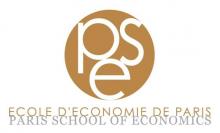
The Paris School of Economics (EEP-PSE), France
The Paris School of Economics (EEP-PSE) was born in December 2006 through the union of the economic departments of six leading Parisian research institutions: The CNRS, the EHESS, the Ecole des Ponts Paris Tech, the ENS, the INRA, and the University of Paris 1 Pantheon-Sorbonne. At the forefront in many different Economic domains, the School proposes selective teaching programmes from M1 to PhD. PSE also develops strong links between different economic knowledge “users”: academics, institutions and private stakeholders.
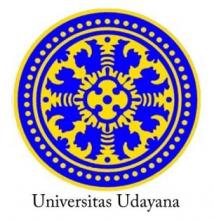
Udayana University, Indonesia
Udayana University (UNUD) is the largest and most prestigious universities in Eastern Indonesia, which was established on 29 September 1962. UNUD aims to increase the potential of students, improving the quality of education and research in Indonesia with optimizing the use of facilities, infrastructure, and enhance the development and management of the institution. UNUD has been working with various external parties, both government, state-owned enterprises, private companies, and NGOs domestically and internationally on the basis of mutual interest and benefit. UNUD has the principle of equality, mutual giving of resources (sharing resources) and mutual benefit. In the GreenWin project, Environmental Studies of Udayana supports climate change issues related with agriculture and energy. Since Center of Research and Technology for Clean Energy was established in Bali from February 2016, UNUD collaborates with Indonesian government improving the capacity of the institution.

University College London, UK
The sister institutes, UCL Institute for Sustainable Resources (ISR) and UCL Energy Institute (UCL-Energy), are located in The Bartlett, the internationally renowned Faculty of the Built Environment at UCL. UCL ISR and UCL-Energy have a broad range of expertise in policy, resource efficiency, energy system and sustainability analysis, which have been widely used to support policy making. With research projects to a value of more than £15 million, including five current FP7 projects (POLFREE, EMInInn, CECILIA2050, ADVANCE and Carbon-CAP) the twin institutes have fast become one of the centres of excellence in energy and sustainability research in the UK. Researchers from the Institutes feed into government policy at all levels, through Ministerial Advisory Panels and Expert Task Forces at UK level, projects, conferences, seminars and workshops for different DGs of the European Commission, and membership of UNEP’s International Resource Panel globally.
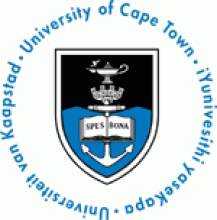
University of Cape Town, South Africa
The University of Cape Town (UCT) is Africa’s leading research university, consistently in the top 200 in international university rankings. The African Climate and Development Initiative (ACDI) established in 2011 to support interdisciplinary research and teaching on low carbon and climate resilient development, coordinates climate research at the University. With a strong African and Global South perspective, the ACDI leverages the intellectual capital of 20+ academic departments and research centres at UCT to create the largest concentration of expertise in climate and development through collaborative research and training. Expertise is concentrated in four key areas: (i) mitigation; (ii) vulnerability, impacts and adaptation; (iii) climate science; and (iv) sustainable development.


